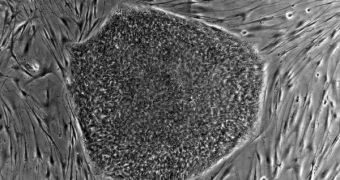Bioengineers and geneticists in the United States are currently worried that, under the new National Institutes of Health (NIH) guidelines currently under development, none of the existing lines of stem cells could benefit from federal funding. The strict informed-consent provisions in the new documents would make it virtually impossible for any of these lines to be further researched, a large number of scientists argues. If that happens, the situation will grow more desperate under Obama than when Bush was president. The former administration severely restricted funding for this type of science, yielding to pressures from religious groups, which argued that this kind of research should be stopped.
“If adopted as written – and we don't think they will be – [the new rules] would make it virtually impossible for any lines that exist now to be eligible for federal funding,” the President of the Coalition for the Advancement of Medical Research (CAMR), Amy Comstock Rick, explained. The initiative is a large consortium of disease organizations, scientific societies and universities, all of which are in favor of and support stem cell research. They also argue that the federal government needs to understand that stem cells are the way of the future, and that cures for a wide range of diseases could be identified by making use of various lines, Nature News reports.
“Even an initial analysis of the 21 NIH-approved cell lines shows that the vast majority would not be available for NIH funding under a strict interpretation of the draft NIH guidelines. Hopefully, the NIH will revise their draft to grandfather in the hundreds of existing lines that have been derived under the highest standards of their time,” a Children's Hospital Boston stem cell researcher, George Daley, said of the lines that were approved by the NIH under former President George W. Bush. The situation is very tense at this point, with religious groups also stepping in and running their usual interference, saying that stem cell research as a whole should be stopped.
Naturally, that would be like sawing off the bough on which one is sitting. And, when considering that some religious groups do not even go to the hospitals when they are sick, and would rather die than enlist the help of a professional, under the reason that “God wants it,” it stands to reason that thousands of comments saying that stem cells are immoral can be safely ignored, tucked away, and never spoken of again. However, a large part of the letters the NIH received over the 30-day public discussion period were from legitimate scientists, worried that even fewer lines than in the Bush-era could soon become available for legitimate research.

 14 DAY TRIAL //
14 DAY TRIAL //